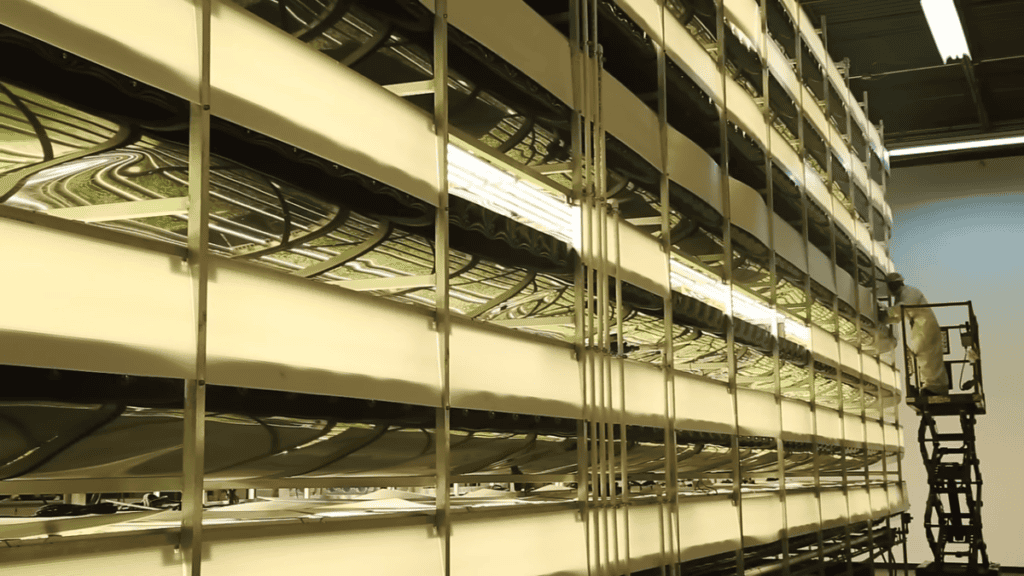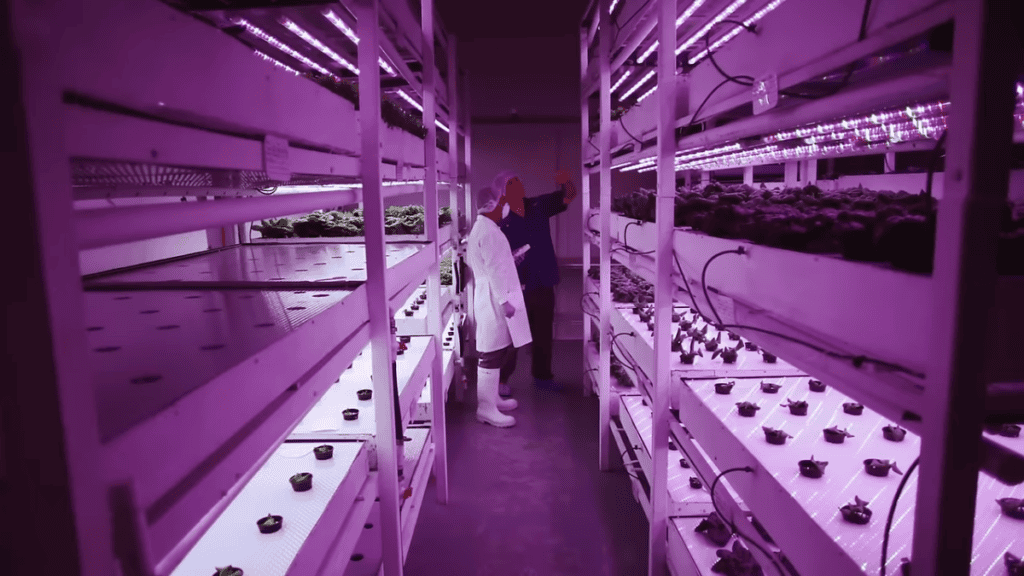In recent years, there has been a growing interest in vertical farming as a sustainable solution to address the challenges facing traditional agriculture.
One pioneering example of this innovative approach is AeroFarms, an indoor vertical farm located in Newark, New Jersey. Let’s delve deeper into this fascinating agricultural revolution and its potential impact on our planet.

AeroFarms: Cultivating Greens in the Heart of the City
AeroFarms is not your typical farm. Nestled within an old industrial neighborhood, this agricultural oasis is housed in a former laser tag arena, where about 250 varieties of leafy greens are cultivated in massive quantities.
What sets AeroFarms apart is its utilization of cutting-edge aeroponic technology, which involves misting nutrition directly to the root structure of plants, eliminating the need for soil and significantly reducing water consumption.
Sustainable Practices and Resource Efficiency
One of the most compelling aspects of AeroFarms is its commitment to sustainability. By eschewing pesticides and herbicides and employing reusable cloth made from recycled plastic for plant growth, AeroFarms minimizes its environmental footprint.
Instead of relying on sunlight, specialized LED lighting is used to nurture the crops, further reducing energy consumption. According to AeroFarms, their innovative approach allows them to use 95% less water than traditional field farms—a remarkable feat in the face of global water scarcity.

Addressing Environmental Concerns
AeroFarms’ emphasis on sustainability is not merely a business strategy—it’s a response to pressing environmental challenges. With freshwater contamination stemming largely from agriculture and arable land degradation becoming increasingly prevalent, the need for alternative farming methods has never been more urgent.
AeroFarms’ sophisticated climate-controlled system enables year-round crop growth, offering a viable solution to mitigate these environmental threats.
A Global Movement
The success of AeroFarms has spurred a global movement towards vertical farming. From Vancouver to Singapore, vertical farms have sprouted in various cities worldwide, each with the aim of revolutionizing food production while minimizing environmental impact.
This expansion underscores the growing recognition of vertical farming as a sustainable solution to feed an ever-growing population.
Looking Towards the Future
Despite the challenges that lie ahead, proponents of vertical farming remain optimistic about its potential to reshape the agricultural landscape. Dickson Despommier, a leading advocate of vertical farming, has long championed its benefits, including increased food production, reduced land and water usage, and mitigated greenhouse gas emissions.
With continued innovation and investment, vertical farming is poised to play a pivotal role in securing a sustainable future for generations to come.
Join the Conversation
As we contemplate the future of food production, it’s crucial to engage in meaningful dialogue and exploration of innovative solutions.
Do you believe vertical farms like AeroFarms hold the key to addressing our food production challenges?

Fact Checked, Written, and Published by Kevin Rodrigues
Kevin is the founder of Gardening Mentor, a website that aims to teach people to grow their own food in a limited space. As a self-taught gardener, Kevin has spent several years growing plants and creating gardening content on the website. He is certified in Home Horticulture and Organic Gardening from Oregon State University. He has a Post Graduate Diploma in Horticulture and Landscape Gardening from Mumbai University.
Read more
